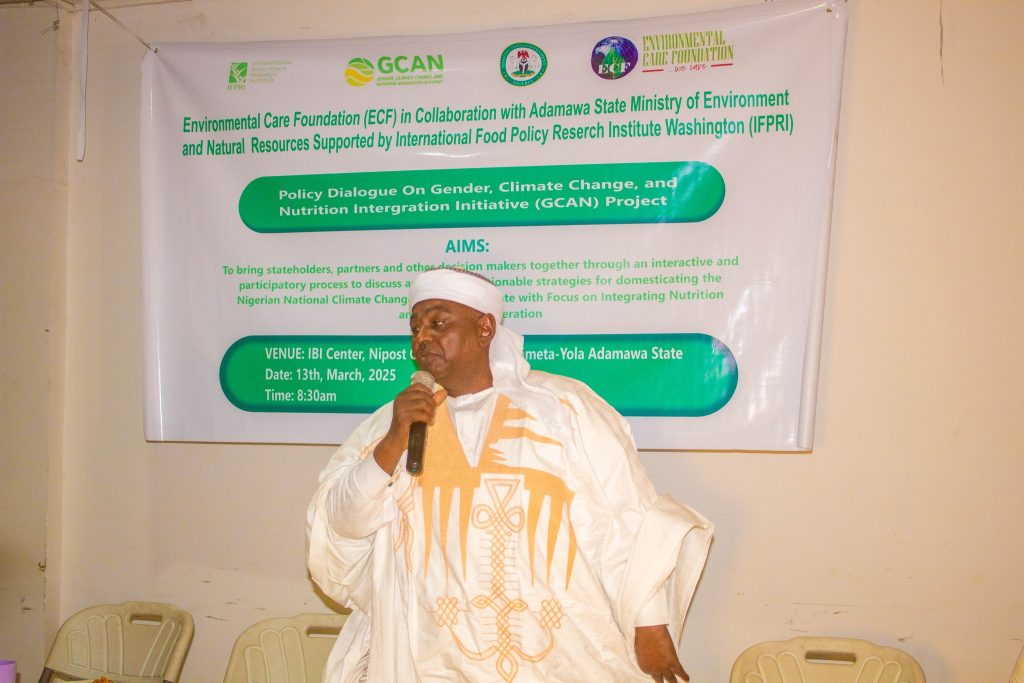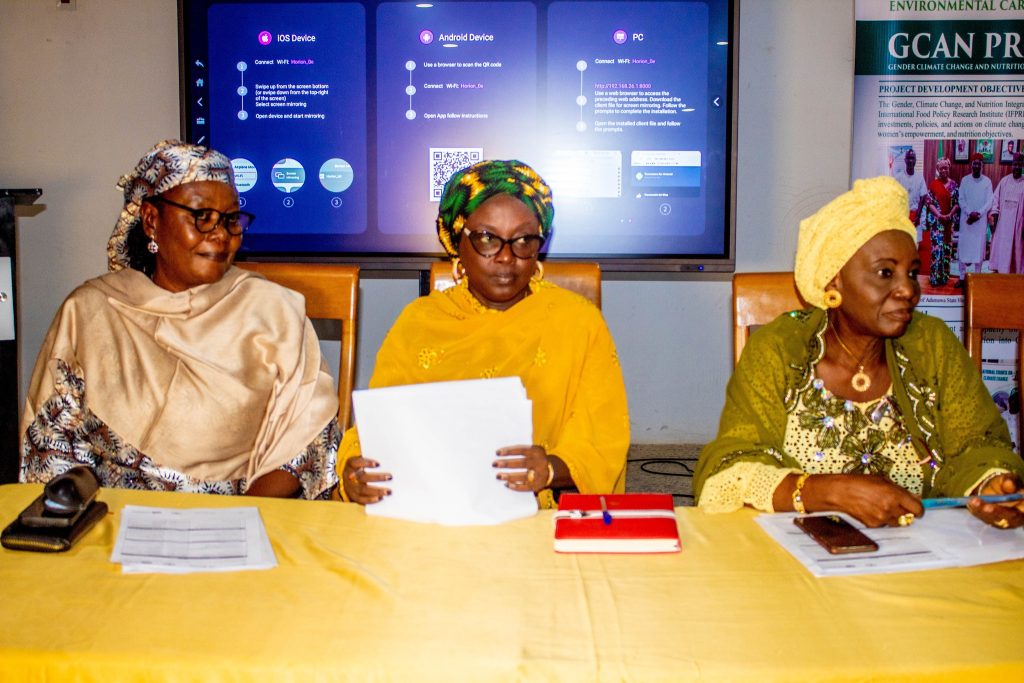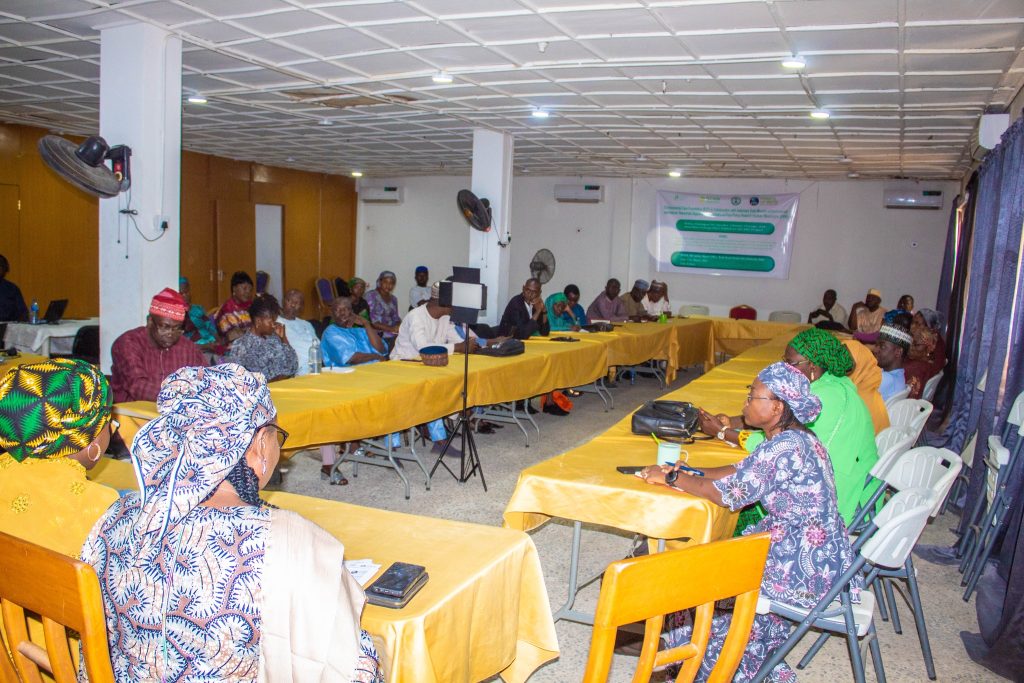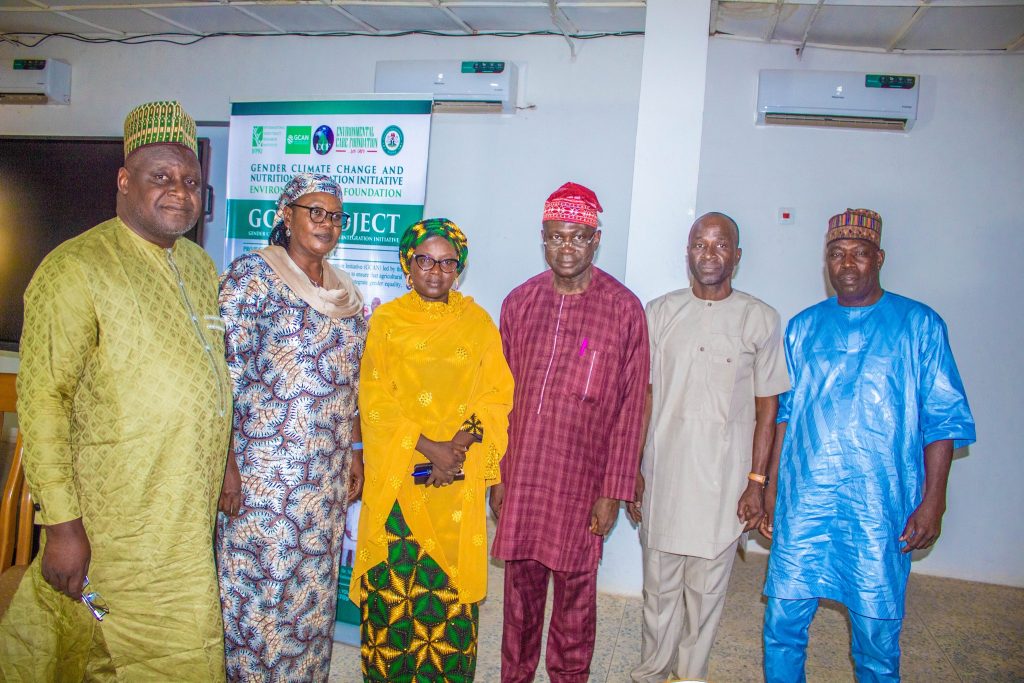The Environmental Care Foundation (ECF), in collaboration with the Adamawa State Ministry of Environment and Natural Resources, with support from the International Food Policy Research Institute (IFPRI), Washington, successfully hosted a Policy Dialogue on the Gender, Climate Change, and Nutrition Integration (GCAN) Project on March 13, 2025, at IBI Center, Jimeta-Yola.
The event was graced by Senior government officials, including the Commissioner for Women Affairs and Social Development, the Chairperson of the Adamawa State Planning Commission, the Permanent Secretary of the Ministry of Environment and Natural Resources, the ACAO from the Ministry of Finance, the Controller of the Federal Ministry of Environment, the Director of Legal Affairs from the Ministry of Justice, and directors from the Ministries of Environment, Agriculture, and Adamawa State Department of Public Health Development Agency (ASDPHDA). Additionally, representatives from NESREA and other government agencies played a crucial role in the discussions. Traditional and community leaders, including the District Head of Yola South and the Vice Chairperson of Yola North, were also in attendance.
The dialogue featured expert insights from ECF Consultant Dr. Emmanuel Bwala, as well as distinguished academics Professor A. A. Adebayo Modibbo Adama University (MAU) and Professor Burmamu Barnabas Modibbo Adama University (MAU), Mr Yohanna Moses the founder and the Principal Special Adviser to Governor On CSOs and NGOs Coordination Environmental care Foundation.
Key representatives from INGOs participated, including the Governance Manager from IRC and the Project Assistant from IOM. The session also welcomed voices from national organizations, including executive directors from Pastoral Resolve, MANGRI, Brook Initiative, ECF, ASABSAH, RATEI, CEPFOWY, DOBIYA, and other relevant stakeholders.
This interactive and participatory session focused on developing actionable strategies for domesticating the State National Climate Change Policy in Adamawa State, with a strong emphasis on nutrition and gender considerations.
Key Takeaways:
![]() The urgent need for inclusive climate policies that consider the needs of women, vulnerable communities, and food security.
The urgent need for inclusive climate policies that consider the needs of women, vulnerable communities, and food security.
![]() The importance of enhanced stakeholder collaboration among Government Agencies, Academia, INGOs, National Organizations, and community leaders.
The importance of enhanced stakeholder collaboration among Government Agencies, Academia, INGOs, National Organizations, and community leaders.
![]() The development of strategic implementation frameworks to ensure sustainable environmental practices and resilience against climate change.
The development of strategic implementation frameworks to ensure sustainable environmental practices and resilience against climate change.
![]() Kudos to all participants and partners for their unwavering commitment to shaping a more resilient, climate-conscious, and nutrition-secure society!
Kudos to all participants and partners for their unwavering commitment to shaping a more resilient, climate-conscious, and nutrition-secure society! ![]()
![]()
#GCANProject#ClimateAction#GenderEquality#NutritionMatters#SustainableFuture#PolicyDialogue





